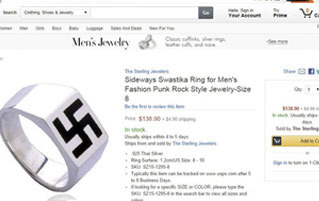5 Tiny Mistakes That Became Huge PR Nightmares for Companies

In their rush to push out an exciting new product or service, companies will occasionally overlook seemingly minor details that wind up being explosively offensive to a significant portion of the population, if not the entirety of planet Earth. Despite being honest mistakes with no malice intended, the vast majority of these public relations nightmares could have been avoided with a cursory Internet search (or anything above a kindergarten-level awareness of current events).
A Publisher Puts a Porn Star on the Cover of a Math Textbook
The cover image on a school textbook is one of those things that nobody in the universe pays attention to, so it should come as no surprise that, when recently tasked with finding an appropriate picture to slap on the front of a math book, a Thai publishing house didn't exactly want to spend an entire afternoon on it. So, mustering all of the gumption of a college freshman doing research for a term paper, they apparently typed "Asian woman in classroom" into Google image search and went with the first picture that came up.
Of course, that picture ended up being a screenshot of Japanese porn star Mana Aoki from her film Costume Play Working Girl, taken moments before she tore her breasts free from their business-suit prison, because fate occasionally likes to play hilarious jokes on us.
Unbelievably, nobody at any stage of the book's production noticed this fantastic oversight, and the company shipped thousands of copies to different colleges before a helpful user on Twitter finally pointed out the mistake, to the disappointment of legions of college students expecting an illuminating textbook about sex math:

The answer to every problem is 69.
The publisher issued a hasty apology and recalled the racy textbooks, replacing them with copies that removed the offending image. The issue appears to be resolved, at least until someone on Twitter points out that one of the other random images thrown on the cover of the book is actually a picture of a notorious serial killer or something.
A Store Chain Accidentally Stocks Tons of Penis Candy
When a New Zealand man received a bag of candy treats from his three young daughters for his birthday, arguably the last thing he was expecting was a sack full of bulbous gummy crotches. However, as you might have guessed, that's exactly what he got. Otherwise we wouldn't give one bucket of Willy Wonka trouser fudge about him or his birthday.

No wonder The Hulk is so angry.
In addition to bulging, chewy dicks throbbing with fruity flavor, the man's bag of birthday treats (which, again, were a gift to him from his three daughters, all under the age of 10) also contained anatomically correct gummy bears, waving their penises around like Kevin Bacon in Wild Things. Because the celestial puppeteer in charge of the cosmos has a sense of humor, this hapless father wasn't the only person on the receiving end of this pornographic candy thrust, as numerous complaints began to spring up in stores across the South Island of New Zealand.
As it turns out, several shops had mistakenly been shipped pounds of dick-shaped candy from a manufacturer in China, and because quality control is really difficult to manage when you're dumping thousands of pieces of candy into plastic bins in your stores, all those penises had accidentally made their way into the hands of unsuspecting customers.

And into their mouths.
The owner of the stores enacted a hefty recall, and the manufacturer apologized for the error and refunded him a portion of the money he had unwittingly shelled out to stock his family supermarket with tiny edible dicks.
A Chocolate Company Changes Its Name to ISIS
Belgian chocolate company Italo-Suisse finally decided it was time to change its name, seeing as the organization no longer had anything to do with Italy or Switzerland, which was apparently a source of irreconcilable confusion among customers. After a rigorous brainstorming session clearly conducted in a room without Internet access, television, or newspapers, the famous chocolate company settled on the name ISIS and hastened to push mountains of rechristened product into stores. Again, presumably without checking the Internet, because if they had, they probably would have realized that ISIS is the name of a group of maniacal terrorists responsible for an ongoing campaign of invasion and murder in Iraq and Syria.

"I've heard of putting bacon or chili in chocolate, but terrorism is where I draw the line."
Unfortunately for the chocolatiers with an aversion to reading the news, sales plummeted, because most people don't want to buy candy that might get them put on an international watchlist. Knowing that they could feign ignorance and use the old "I didn't know it was a terrorist group" excuse only once, the exasperated company quickly issued an apology and re-changed their name to Libeert, which is the name of the family who owns the company and is such a quintessentially European candy-making name that it's incredible they didn't pick it in the first place.
KFC Parent Company Chooses Communist Symbol for New Vietnamese Restaurant
Yum Brands, the princes of industry behind such esteemed anus-destroying restaurants as Taco Bell and KFC, decided to open a new eatery in Dallas called Banh Shop, a Vietnamese sandwich chain. In a business decision that should come as no surprise to anyone who has ever been inside a Taco Bell, Yum Brands didn't bother to do any research whatsoever into Vietnamese culture before branding their new restaurant with a giant red star. That particular meeting presumably got as far as someone pointing out that people in Texas really like stars before being adjourned for the day.

If they had bothered to do even the teeniest ounce of research (a phrase here meaning "actually speak to a Vietnamese person for 17 seconds"), they would have realized the red star is the mark of the Vietnamese Communists, the North Vietnamese regime that assumed control in the mid-'70s and forced thousands to flee the country. Needless to say, those actual Vietnamese people we mentioned earlier were less than impressed with Yum Brands' new dining destination.

"Our apologies. Please accept a complimentary Agent Orange Julius during your next visit."
Despite the fact that Yum Brands isn't exactly a company known for its cultural sensitivity (the president of Taco Bell once famously said that they didn't want Taco Bell to be "too Mexican"), they admitted that perhaps they hadn't been as informed as they should have been when designing the look of Banh Shop and tore down that red star like the Berlin Wall.
We Just Can't Stop Putting Nazi Symbols on Everything
Retailers like Amazon, Walmart, and Sears have online marketplaces that host third-party sellers on their websites, sort of like a broker between you and that limited edition Spider-Man action figure you keep getting outbid for on eBay. With literally millions of products in your inventory, it starts becoming unwieldy to proofread and approve each individual third-party listing, which partially explains how Sears ended up selling swastika rings on their website. The other explanation is that they are Sears, and as such gave up on themselves long ago.

"Half off during our White Friday sale!"
The rings, labeled "punk rock style," because apparently nothing is more counterculture than the official international logo of racist genocide, were quickly removed from the website once Sears realized they were selling them, which seems to suggest that someone could be selling fucking body parts on Sears.com for weeks before anyone from the organization noticed.
Because one case of "whoops, that's for Nazis" is never enough, the Spanish fashion company Mango recently debuted a stunning blouse bedazzled with tiny lightning bolts virtually identical to the insignia worn by the SS, the paramilitary organization created by the Nazis for the explicit purpose of murdering millions of people as efficiently as possible.

Once again, the task of informing a manufacturing giant that they were doing humanity a disservice fell to the ever-vigilant users of Twitter, and Mango apologized for what they insisted was an entirely unintentional resemblance, even though they had to issue a similar apology last year for their line of esclave (or "slave style") jewelry.
For more unbelievable PR whoopsies, check out 4 Hilarious Leaked Emails Corporations Don't Want You to See.
